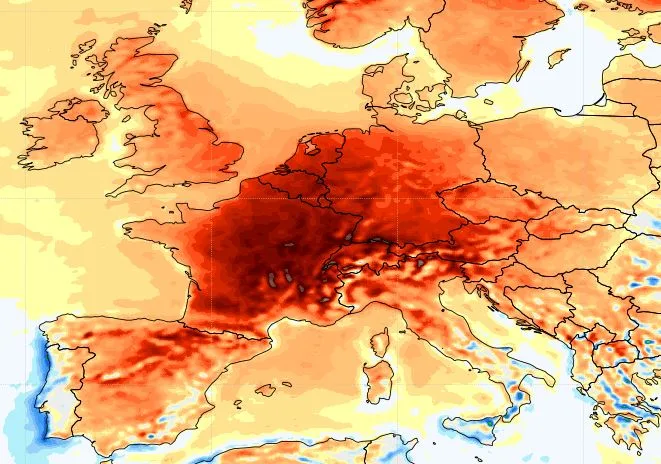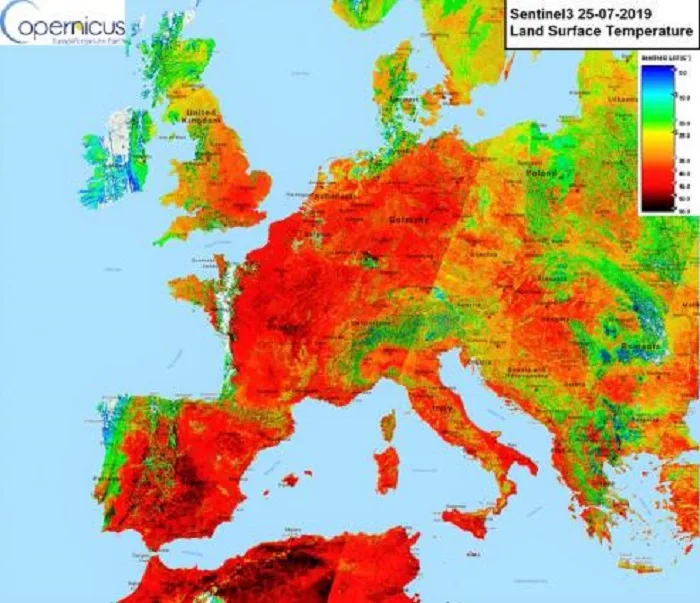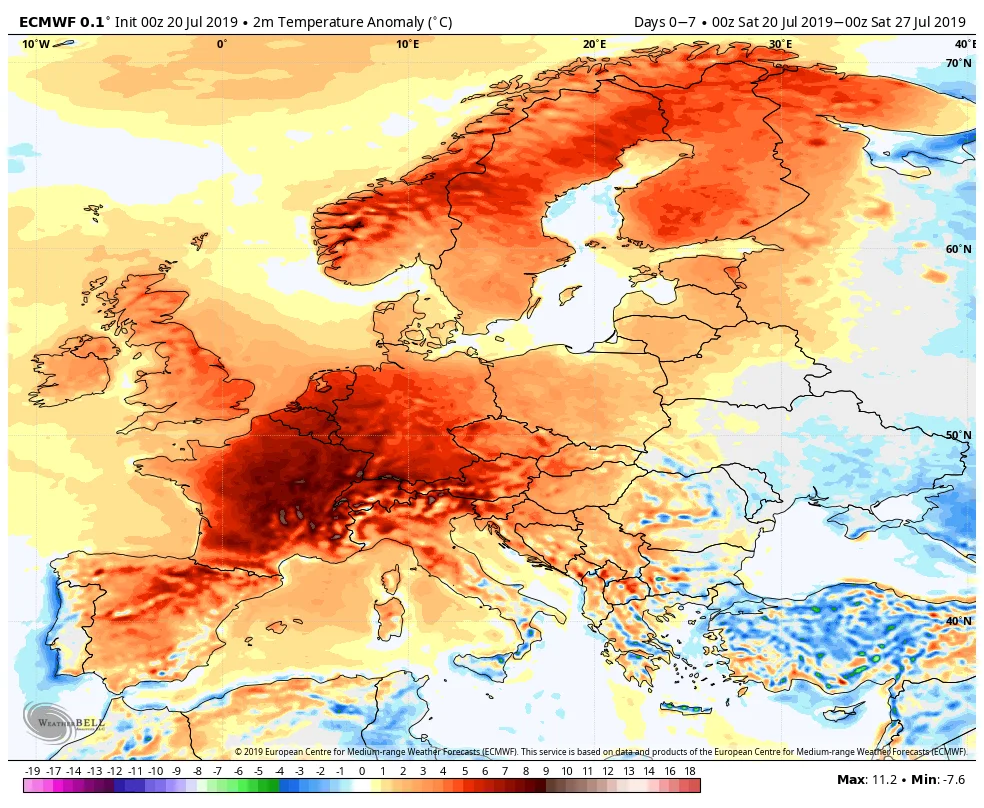
July very possibly the warmest month ever measured on Earth
If confirmed, it'll follow on this year's hottest June ever recorded.
July 2019 has been a month of many record temperatures around the globe, very likely making it the warmest ever recorded on Earth, set to break the all-time record set in 2016.
Preliminary data released by the Copernicus Climate Change Program (C3S) for the period of July 1-29, show that this July is expected to be slightly warmer, with an estimated average mean of 16.6°C, a value practically identical to the one set in July 2016.

Image: Land temperature data from July 25 (Copernicus Climate Change Program)
Temperatures during the past 12 months are very similar to those recorded between July 2015 and June 2016. Then the planet was under the influence of one of the strongest El Niño events on record, which contributed significantly to the overall higher global average temperature. Unlike 2016, 2019 has not been marked by such a strong El Niño, meaning that much of the extra warming is most likely not linked to natural climate variability signals such as the one measured in the tropical equatorial Pacific. Data from Copernicus also shows that we are on track to completing the warmest five-year period, as 2015, 2016, 2017, 2018 and now 2019 could become the hottest on record. There are still five months left in the year, but experts anticipate that 2019 will most likely be one of the five warmest on record, with a good chance of taking one of the top three spots.
During the summer months, Europe has been one of the main contributors to the excess heat added to July's average. Record high temperatures have been the norm not only in July, but also during June. The heat that spread from Scandinavia to Greenland also accelerated the rate of ice melt in the Arctic and in a good number of European glaciers. The warmth in the Arctic was accompanied by devastating wildfires that scorched thousands of hectares.

Image: European Centre for Medium-range Weather Forecasts.
Belgium, Germany, Luxembourg, the Netherlands and the United Kingdom saw new national temperature records on July 25, as weather observation maps showed for the first time temperatures above 40°C. Paris measured its hottest day on record, with a temperature of 42.6°C at 4:32 p.m. local time -- an unprecedented value since the beginning of measurements.
Nighttime heat has also played an important role in bumping up the global average for the month of July. Much of Europe´s heat was caused by warm air flowing up from North Africa and Spain into Central Europe and Scandinavia. Norway saw new records on July 27, with 28 locations experiencing “tropical nights” above 20°C. Finland's capital Helsinki set a new record at 33.2°C on July 28, and in the south of Finland, Porvoo saw a temperature of 33.7°C. According to the World Meteorological Organization, heat waves are becoming more intense and persistent, a signal that has been long anticipated by climate forecasts conducted at some of the top research institutions of the world. This coming Monday we will have the precise numbers of how warm this July 2019 was compared to other Julys.












